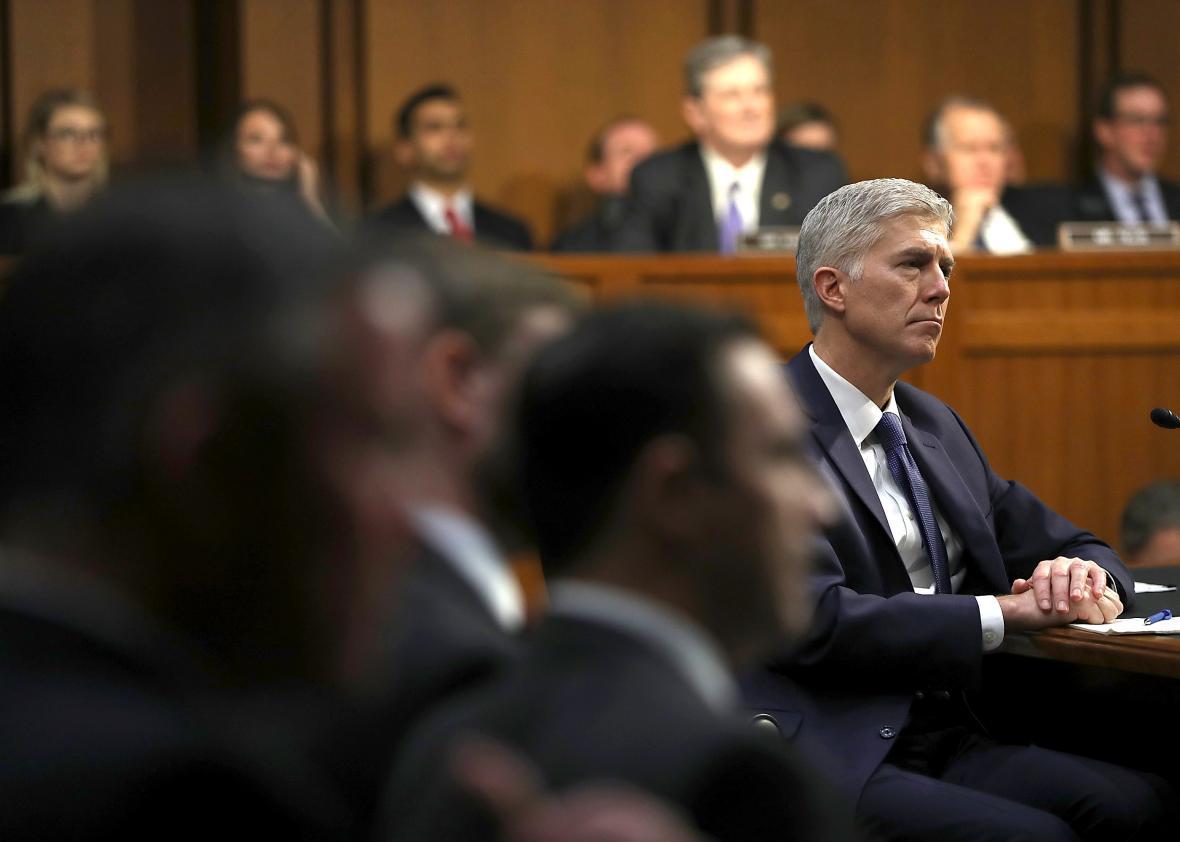Tuesday’s Senate Judiciary Committee hearing on Neil Gorsuch’s nomination to the Supreme Court has not revealed a great deal about the nominee. Gorsuch has proved adept at avoiding substantive answers, citing his commitment to impartiality as reason to remain silent on important issues. But Democratic Sen. Sheldon Whitehouse rattled Gorsuch with a series of increasingly tough questions about corruption, corporate spending, and Citizens United. Noting that outside groups are spending millions of dollars urging Gorsuch’s confirmation—and previously spent millions attacking Judge Merrick Garland—Whitehouse brought up Philip F. Anschutz, a secretive billionaire with ties to Gorsuch. He then asked Gorsuch about the constitutionality disclosure requirements for political contributions and expenditures. Gorsuch refused to answer directly, of course, but the resulting colloquy is quite fascinating.
Clearly, Whitehouse was trying to press Gorsuch on whether he believes disclosure requirements violate the First Amendment by chilling the “speech” of donors and corporations who would like to spend millions of dollars electioneering. Justice Clarence Thomas has championed that view, asserting that the Constitution protects corporations’ right to spend and donate unlimited sums of money on politics in absolute secrecy. But in Citizens United, every justice except Thomas agreed that Congress could force corporations to comply with disclosure requirements when they spend money politicking. Gorsuch never revealed whether he sides with Thomas or the court’s majority—but he did state that disclosure laws may sometimes “chill expression,” leaving the door open to a future decision invalidating them on First Amendment grounds.
Whitehouse also landed a jab when he pointed out that the individuals and corporations that dominate our politics today spend vast amounts of money attempting to mold the judiciary. Donors like the Koch brothers pour their wealth into organizations like Cato, which, in turn, lobbies the court to strike down regulations that will benefit the Kochs’ businesses. Several justices also socialize with these billionaires. And because of our lax disclosure laws, it is often very difficult to determine who is spending money and how. For example, Whitehouse said, someone is spending $10 million to get Gorsuch confirmed.
“Hypothetically,” he continued, it could be “your friend Mr. Anschutz. We don’t know because it is dark money.” He asked Gorsuch why someone thought it was worth $10 million to get him confirmed.
“You’d have to ask them,” a frustrated Gorsuch responded.
“I can’t,” Whitehouse said, “because I don’t know who they are. It’s just a front group.”
Whitehouse previewed this line of questioning on last week’s Amicus podcast with Dahlia Lithwick. The real thing sounded even better.
